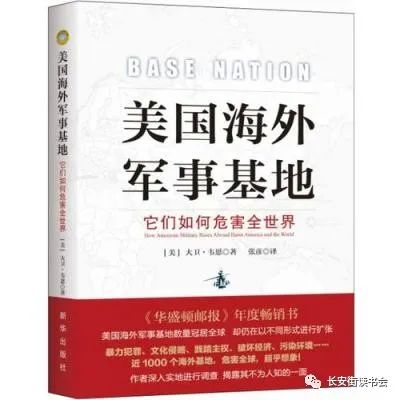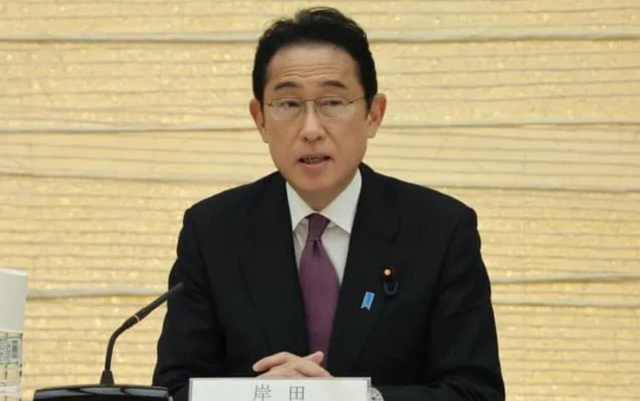"Good Book Recommendation" "American Overseas Military Base": a security predicament of self -binding cocoons
Author:Chang'an Street Reading Club Time:2022.08.11
"U.S. Overseas Military Base": a security dilemma of self -binding cocoon
Recommended books

★★★★★
In 2021, the U.S. military hurriedly evacuated Afghanistan's scene to impress the world: the large armored vehicles and helicopters that were abandoned, and the helicopter of the rolling take -off and landing and landing reminded people of the end of the Vietnam War. In 2022, the United States frequently ignited the wind in the Central and Eastern European and Asia -Pacific regions, and there was a big black cloud. As Hegel said: "The only lesson that mankind has received from history is to never learn any lessons." As a country with the largest number of overseas bases in human history, the United States has re -entered the overseas base and launch the United States for decades and launching the launch of overseas bases. Junior intervention script. American scholar David Wayne made wonderful dissection of this expanding "base country" in the book "U.S. Overseas Military Base".
I remember a foreign friend mentioned that there is a large US military base in his country. Being able to bring your family into the U.S. base to enjoy a big meal on holidays, it has become a sign of identity in the local upper society. Today, the US military base has become a symbol of American culture like Coca -Cola and Hollywood, but this violent cultural symbol that gradually penetrates into American genes is also eroding the stability and development of the United States itself and even the world.
According to the statistics of the author of this book, the number of overseas military bases in the United States is about 800; and during the heyday of Afghanistan and Iraq, the number of bases and whistle cards in the two countries alone in the United States alone. The infinite expansion of the base is the result of the common role of the US political culture and interest groups.
First of all, since World War II, overseas military bases and overseas garrison have gradually become a religious argument in the US military and political circles. Overseas military bases cleverly borrowed the strategy of maritime power in the 19th century, and were packaged as the indispensable start of the US military's curbing strategy and cutting -edge deployment policies -the base has become American politicians and generals to "maintain national security "The core of the discourse system. Even after the end of the Cold War, the U.S. military and political circles spare no effort to create new propositions such as anti -terrorism war and carefully maintain the "American brand" of overseas military bases. Secondly, US military plans and commercial interests are often deeply bundled. After World War II, a major motivation for the U.S. government to build overseas military bases was to become the leader of the aviation industry and the rules of the international logistics territory, and then gained a leading position in the global raw materials and capital markets. Since the 21st century, the intensified military outsourcing trend and the US political and business rotation door system have strengthened private contractors such as KBR, making overseas military bases the prey of capital, and then creating a self -existence benefit transmission system. Finally, military bases are an important fulcrum for the United States to expand national interests. Especially since the 21st century, the US military's overseas base has gradually developed towards miniaturization and hidden directions. The base itself has also been labeled with mild and friendly labels such as joint exercises, human resources training and humanitarian actions. Overseas military bases, as the core of the US military expansion combination, continue to play an important role in maintaining the existence of US military and even consolidating political hegemony. For the unique position of overseas military bases in US politics and strategic territory, US leaders often depict overseas military bases into dual insurance for security and economy. For the host, the US military base is packaged into a stable anchor to maintain regional peace, and accelerators to promote local economic development through assistance and investment. For domestic people, the United States emphasizes the "special effects" that maximize the interests of the United States at the minimum casualties and economic costs through overseas bases to carry out "outsourcing war" and "partners' anti -terrorism" through overseas bases.
But in fact, the cost and trouble of the U.S. bases are far impressive than the "base dividends". First of all, the base puts the United States with a heavy financial burden. The author estimates the annual expenditure of US overseas conventional bases exceeding 70 billion US dollars, surpassing the budget of any US government department outside the Department of Defense, and this cost does not include expenses in the base in overseas theater and the indirect cost behind the base. What's even more ironic is that the base has not eased, but has deteriorated diplomatic and security deficits. The U.S. bases and related to seizing land and human rights violations have become a distinctive label of American hegemonism, which has intensified the anti -American emotions of the host country. As a result, U.S. bases often become the focus of public protests and diplomatic disputes. In addition, the existence of U.S. bases has exacerbated regional tensions, which also makes it easier for the US military and even the country to become potential opponents. The risk of conflict. To a certain extent, the U.S. military has become a prediction of self -realization through overseas military bases -the base is continuously creating their threats to defense.
If the security and political and economic issues brought by military bases are only temporary difficulties, the military thinking behind the base will have a deeper and serious impact on the United States. As an English saying says: "People holding the hammer look like a nail." Solving the problem in a way of confrontation instead of dialogue, looking at the evolution of the international situation from a zero -sum perspective, and lasting in the state of war and preparing for war, All these are self -setting in the United States and gradually trapped. In the current period of turmoil that has not been unprecedented at the moment, this has also created new fog and ups and downs for world peace and development.
Yao Jingshun: Members of the Corporation of Chang'an Street Reading Club
For more exciting, please click
New Book Recommend Chang'an Street Reading Club No. 20220803 Cadres to Learn the New Book List
Chang'an Street Good Book Changan Street Reading Club Annual Recommended Cadre Learning Book List (Classic, Popular Articles)
- END -
Frequent accidents, U.S. military ground CV-22 "Merlogs" machine

The U.S. Air Force Special Combat Command confirmed that for security reasons, all...
Global Times comment: See clearly!Japan is not a "hellokitty cat"

Recently, US Western public opinion has paid great attention to Japan's movement i...